Track
I’ve heard it countless times in interviews before: “What do you do to keep ahead of the curve and upskill?” Well, one way I’ve always responded to this question is by obtaining certifications that validate your skills and knowledge.
Among the many data certifications available today, Databricks certifications have emerged as valuable assets for professionals aiming to enhance their expertise in big data and AI.
This guide aims to teach you everything you need to know about Databricks certifications, from understanding what they are to how they can boost your career.
What Are Databricks Certifications?
Databricks certifications are industry-recognized credentials that validate your proficiency using Databricks' unified analytics platform. These certifications are designed to test your knowledge and skills in big data processing and machine learning using Databricks.
They testify to your ability to manage and analyze large datasets effectively, which is increasingly important in today's data-driven world.
Components of a Databricks Certification
For those who are completely new to obtaining Databricks certifications, there are typically several steps to pass and obtain the certification.
In this next section of the article, I will provide a high-level breakdown of the components and process to achieve success:
Step 1: Review the most FAQs about the Databricks certifications
Before diving into the certification process, it's essential to familiarize yourself with the frequently asked questions (FAQs) about Databricks certifications. This will give you a clearer understanding of what to expect, the prerequisites, and how the certification can benefit your career.
Step 2: Get ready for the exam
This might sound obvious, but it has to be said: preparation is key to passing the Databricks certification exam.
Even if you’re using the platform regularly in your role, it's still recommended that you prepare additionally ahead of your exam. This involves studying the relevant materials, taking practice exams, and understanding the exam format.
Databricks offers various resources, including documentation, tutorials, and training courses, to help you prepare thoroughly. DataCamp also offers a comprehensive Introduction to Databricks course.
Step 3: Sign up for the exam
Once you feel prepared, the next step is to sign up for the exam. Databricks exams are typically conducted online, so you can take them from anywhere.
Ensure you meet all the technical requirements and have a stable internet connection before scheduling your exam.
Step 4: Get your results!
You'll receive your results after completing the exam. If you pass, you'll be awarded the certification, which you can showcase on your resume and professional profiles.
If not, don’t be discouraged; use the feedback to prepare better and try again!
Are Databricks Certifications Worth It in 2026?
With the rapid advancements in data technology, Databricks skills are increasingly in demand. Many companies across varying industries are partnering with Databricks to innovate, again providing more reasons to obtain Databricks certifications.
If you need further persuading, here’s a list of reasons why obtaining a Databricks certification can be a valuable investment for your career in 2026:
Databricks skills are on the rise
- Increased demand: Companies seek professionals with expertise in big data and AI.
- Cutting-edge technology: Databricks is at the forefront of innovation in data processing and analytics.
- Versatility: Skills learned through Databricks certifications can be applied to various industries.
Databricks certifications are valuable for employers
- Verified expertise: Certifications provide employers with proof of your skills.
- Competitive edge: A Databricks certification can set you apart from other candidates.
- Career advancement: Certified professionals are often considered for promotions and higher responsibilities.
Databricks certifications help diversify your skills
- Broader skill set: Enhance your knowledge in data science, machine learning, and big data.
- Increased employability: A diverse skill set makes you more adaptable to different roles and projects.
- Professional growth: Continuous learning through certifications keeps you updated with the latest industry trends.
What Jobs Can You Get With a Databricks Certification?
A Databricks certification opens doors to various roles in the tech industry. Here are some of the positions you might consider:
Data engineer
- What they do: Design and implement data pipelines. Maintain data infrastructure and optimize data workflows.
- Key skills: SQL, ETL (Extract, Transform, Load), Data warehousing
- Key tools used: Databricks, Apache Spark, Python
- How Databricks is used: Data Engineers use Databricks to streamline data processing and ensure efficient data flow within an organization. They leverage Databricks’ scalable environment for real-time data processing and big data analytics.
- Expected wage: The average salary for a Data Engineer with Databricks certification ranges from $88,000 to $123,000 annually, depending on experience and location. Additionally, Data Engineers could earn an average of $27,427 from annual bonuses. According to Glassdoor.
Data scientist
- What they do: Analyze and interpret complex data. Develop machine learning models and communicate insights to stakeholders.
- Key skills: Statistical analysis, Machine learning algorithms, Data visualization
- Key tools used: Databricks, R/Python, TensorFlow
- How Databricks is used: Data Scientists utilize Databricks to preprocess data, build and train machine learning models, and perform exploratory data analysis. Databricks' integration with popular ML libraries like TensorFlow and its collaborative environment enhances productivity.
- Expected wage: Data Scientists with a Databricks certification can expect salaries ranging from $91,000 to $141,000 annually. Additionally, They could earn an average of $44,542 per year from annual bonuses. This is based on average cash pay plus average bonuses, according to Glassdoor.
Machine learning engineer
- What they do: Build and deploy machine learning models. Monitor and maintain ML models in production and collaborate with data scientists/engineers.
- Key skills: Programming (Python, R), ML model development, Cloud computing
- Key tools used: Databricks, Apache Spark MLlib, Azure/AWS.
- How Databricks is used: Machine Learning Engineers leverage Databricks to develop scalable machine learning pipelines, perform hyperparameter tuning, and deploy models at scale. Databricks' seamless integration with cloud services allows for robust ML operations.
- Expected wage: The average salary for a Machine Learning Engineer with a Databricks certification is between $98,000 and $148,000 annually. Additionally Machine Learning Engineers could also earn an average of $44,775 additionally per year from annual bonuses. Based on average cash pay plus average bonuses, according to Glassdoor.
Obtaining a Databricks certification not only enhances your technical skills but also positions you for lucrative roles in the tech industry, making you a valuable asset to any data-driven organization.
Databricks Certifications vs Databricks Accreditations
Throughout this article, we have been referencing the term certifications in general, which is true for most technologies. However, Databricks has set up its certifications in a slightly different model. They incorporate certifications and accreditations.
Certifications are the classic formally assessed certifications we are used to. However, accreditations are widely available, usually free, and not proctored, so they offer an easy entrance to show your skills with Databricks.
Understanding the difference between certifications and accreditations is important when selecting which to choose:
Databricks certifications
- Definition: Formal credentials awarded after passing an exam
- Purpose: Validate technical skills and knowledge
- Issued by: Databricks
- Validity: Typically valid for a few years, requiring renewal
Databricks accreditations
- Definition: Recognition of specific competencies or completion of training
- Purpose: Acknowledge expertise in particular areas through badges earned
- Issued by: Databricks
- Validity: Often valid indefinitely, but may need updates
Below is a comparison summary of the Databricks certifications vs accreditations.
|
Criteria |
Certifications |
Accreditations |
|
Definition |
Formal exam-based credentials |
Recognition of specific competencies through assessments |
|
Purpose |
Validate comprehensive skills |
Acknowledge expertise in particular areas |
|
Issued by |
Databricks |
Databricks |
|
Validity |
Time-limited, needs renewal |
Often indefinite |
A List of All Databricks Certifications and Accreditations
Let’s go into each specific certification and accreditation that Databricks offers.
Databricks certifications
Below is a comprehensive list of certifications available by Databricks. These certifications are structured across different levels, including Associate, Professional, and others:
Data Analyst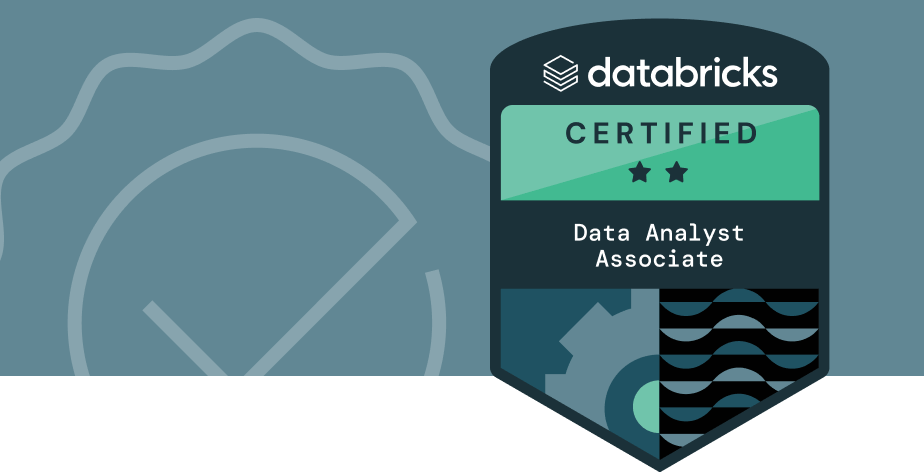
- What is it: Certification for data analysts to validate their skills in data visualization and analysis using Databricks
- Skills tested: Data analysis, visualization, SQL
- Prerequisites: Basic knowledge of data analysis
- Who is it for: Aspiring data analysts
- Cost: $200
- Exam format: Multiple-choice
- Validity: 2 years
- Where to get started: Databricks Data Analyst
Data Engineer - Associate 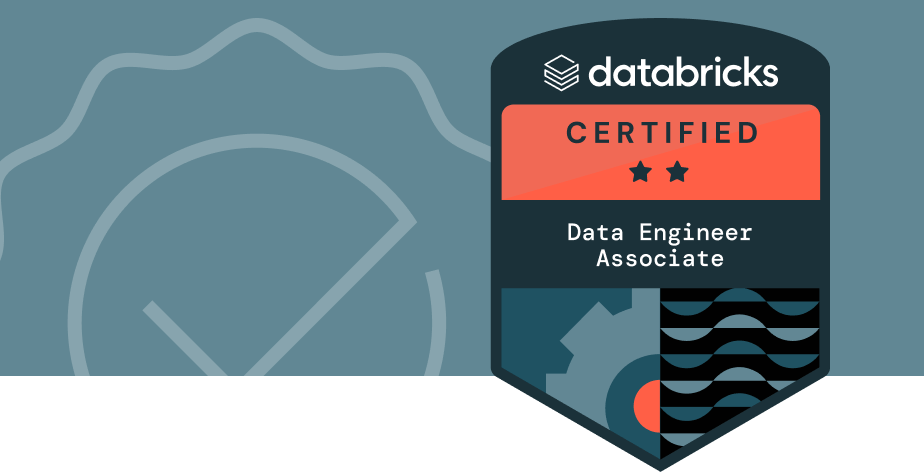
- What is it: Entry-level certification for data engineers
- Skills tested: Data pipeline development, ETL processes
- Prerequisites: Basic knowledge of data engineering
- Who is it for: Aspiring data engineers
- Cost: $200
- Exam format: Multiple-choice
- Validity: 2 years
- Where to get started: Databricks Data Engineer Associate
Data Engineer - Professional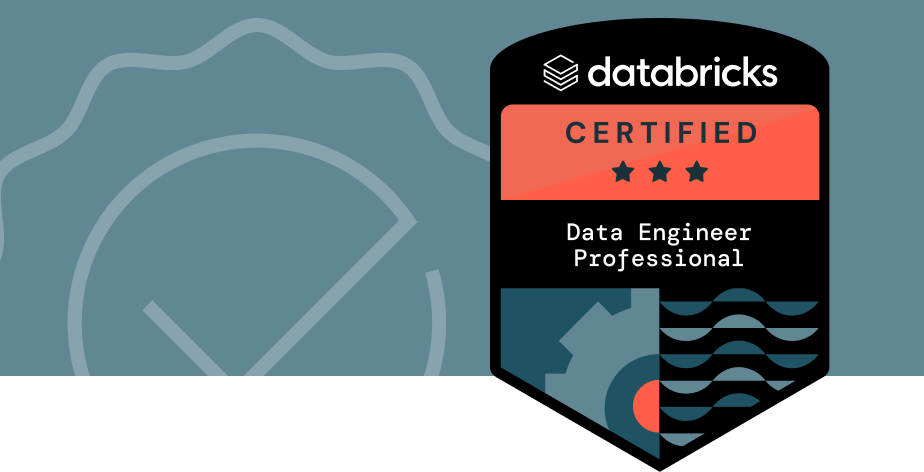
- What is it: Advanced certification for experienced data engineers
- Skills tested: Advanced data pipeline development, complex ETL processes, performance optimization
- Prerequisites: Extensive experience in data engineering
- Who is it for: Experienced data engineers
- Cost: $300
- Exam format: Multiple-choice and hands-on tasks
- Validity: 2 years
- Where to get started: Databricks Data Engineer Professional
Machine Learning Engineer - Associate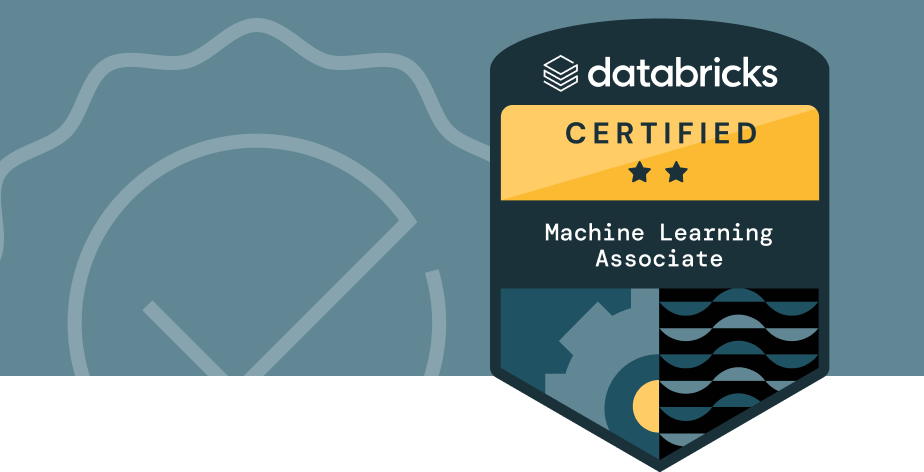
- What is it: Entry-level certification for ML engineers
- Skills tested: Basic machine learning concepts, model development
- Prerequisites: Basic knowledge of machine learning
- Who is it for: Aspiring ML engineers
- Cost: $200
- Exam format: Multiple-choice
- Validity: 2 years
- Where to get started: Databricks Machine Learning Engineer Associate
Databricks Certified Machine Learning Engineer - Professional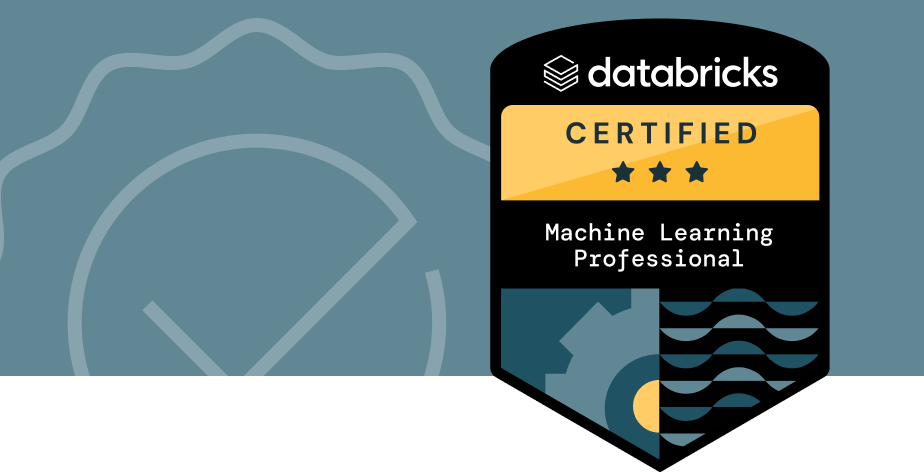
- What is it: Advanced certification for experienced ML engineers
- Skills tested: Advanced ML concepts, model deployment, performance optimization
- Prerequisites: Extensive experience in machine learning
- Who is it for: Experienced ML engineers
- Cost: $300
- Exam format: Multiple-choice and hands-on tasks
- Validity: 2 years
- Where to get started: Databricks Machine Learning Engineer Professional
Generative AI Engineer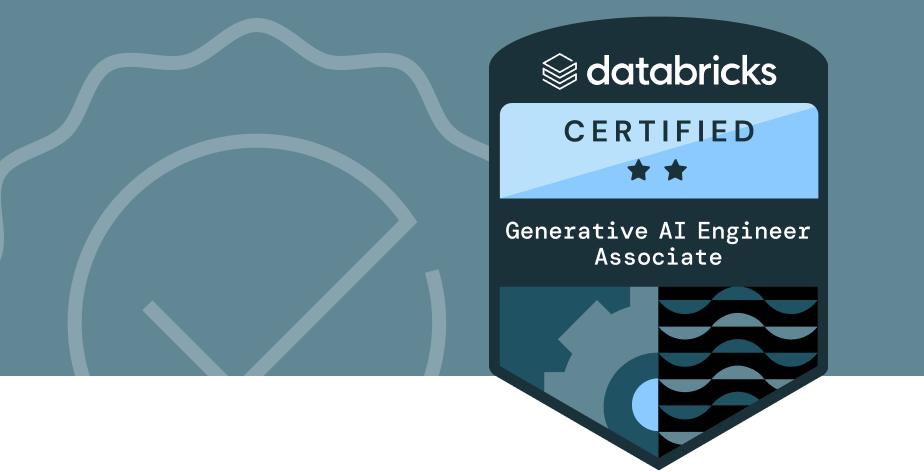
- What is it: Certification for AI engineers specializing in generative AI
- Skills tested: Generative AI models, AI applications
- Prerequisites: Basic knowledge of AI and machine learning
- Who is it for: AI engineers, data scientists
- Cost: $300
- Exam format: Multiple-choice and hands-on tasks
- Validity: 2 years
- Where to get started: Databricks Generative AI Engineer
Apache Spark Developer Associate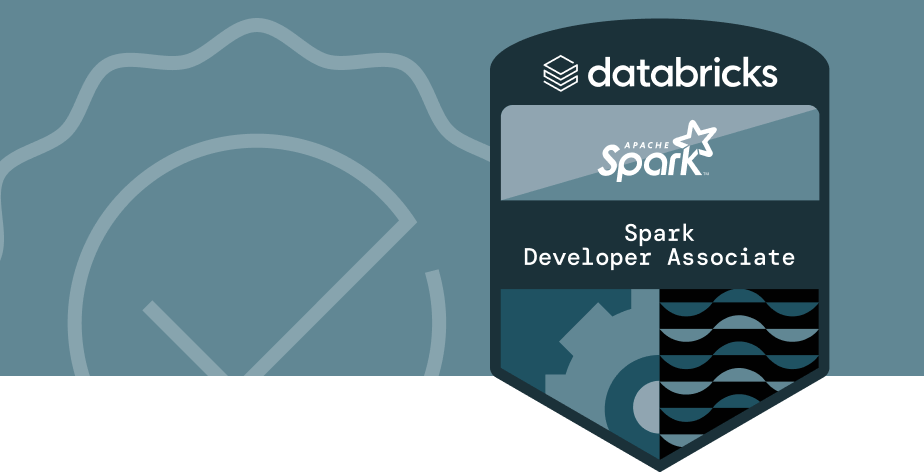
- What is it: Certification for developers using Apache Spark on Databricks
- Skills tested: Spark programming, data processing
- Prerequisites: Basic knowledge of Spark
- Who is it for: Developers, data engineers
- Cost: $200
- Exam format: Multiple-choice and coding tasks
- Validity: 2 years
- Where to get started: Databricks Apache Spark Developer
Hadoop Migration Architect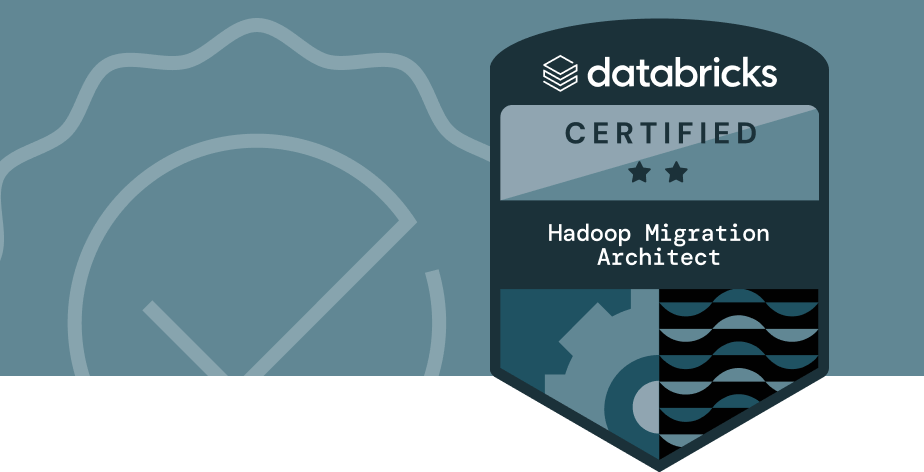
- What is it: Certification for architects migrating Hadoop workloads to Databricks
- Skills tested: Hadoop migration strategies, data architecture
- Prerequisites: Knowledge of Hadoop and Databricks
- Who is it for: Data architects, engineers
- Cost: $300
- Exam format: Multiple-choice and project-based tasks
- Validity: 2 years
- Where to get started: Databricks Hadoop Migration Architect
Databricks accreditations
As mentioned, accreditations offer Databricks developers the ability to pass accreditations and earn badges demonstrating their skills in specific Databricks topics.
Thus, these accreditations are often categorized into different Databricks topics. They are designed to be accessible to all and introductory, as such, they are free to take. The accreditation often then lasts forever.
Unlike the certifications, these assessments are much faster, often only taking 20 minutes to complete.
You can access more FAQ information about the badges here.
Databricks Fundamentals
- What is it: Accreditation for basic knowledge of the Databricks platform
- Purpose: Introduce foundational concepts
Generative AI Fundamentals
- What is it: Accreditation for foundational understanding of generative AI
- Purpose: Introduce basic generative AI concepts
AWS Platform Architect
- What is it: Accreditation for architects working with AWS and Databricks
- Purpose: Validate skills in AWS and Databricks integration
Azure Platform Architect
- What is it: Accreditation for architects working with Azure and Databricks
- Purpose: Validate skills in Azure and Databricks integration
GCP Platform Architect
- What is it: Accreditation for architects working with Google Cloud Platform and Databricks
- Purpose: Validate skills in GCP and Databricks integration
Platform Administrator
- What is it: Accreditation for administrators managing Databricks platforms
- Purpose: Validate skills in platform administration
Earn a Top Data Certification
How to Choose the Right Databricks Certification for You
Here are some basic criteria I think you should take into consideration when choosing a Databricks certification:
Alignment with career goals
Select a certification that aligns with your long-term career objectives. For instance, if you aim to become a data engineer, pursue certifications in that domain.
Difficulty level
Assess the difficulty level of each certification. Start with entry-level certifications or accreditations and gradually advance to more challenging ones as you gain experience.
Cost and investment
Consider the cost of the certification exam and the resources required for preparation. Investing in a certification should be weighed against the potential career benefits it offers.
How to Pass Databricks Certifications?
Passing a Databricks certification obviously requires proper knowledge and preparation, but here are some things to consider:
1. Understand all the logistics involved
Ensure you understand the exam format, duration, and technical requirements. Familiarize yourself with the testing platform and rules.
2. Prepare and study in advance
Dedicate sufficient time to study and practice. Utilize Databricks resources and practice exams to gauge your readiness.
3. Practice on accreditations first
Focus on gaining accreditations first to help you prepare and practice for the formal Databricks certifications.
4. Use DataCamp resources to get you Databricks certified
DataCamp offers several courses and tutorials that can aid in your preparation:
5. Secure a quiet spot on the day of the certification exam
Ensure you have a quiet, distraction-free environment to take the exam. This will help you focus and perform your best.
Could a Role-Based Certification be Better for You?
Tool-based certifications, like those offered by Databricks, demonstrate your expertise in specific technologies, making you a valuable asset for companies using those tools.
In contrast, role-based certifications prepare you for specific job roles, providing a broader skill set that can be applied across various tools and platforms.
DataCamp offers role-based certifications such as the one below that can complement your Databricks credentials, enhancing your professional versatility and employability.
DataCamp’s data scientist certification
- What is it: Validates skills in data science
- Skills tested: Statistical analysis, machine learning
- Prerequisites: Basic programming knowledge
- Who is it for: Aspiring data scientists
- Cost: $25 per month (included in our Premium Membership)
- Exam format: Project-based
- Validity: 2 years
- Where to get started: Data Scientist Certification
Final Thoughts
As you can see from the length of this article, there are several options available to those who are looking to upskill and certify themselves as experts in Databricks.
Earning a Databricks certification can significantly enhance your career prospects in the data industry. Whether you’re just starting or looking to advance your career, these certifications validate your expertise and open doors to new opportunities.
Invest in professional development by choosing the right certification and leveraging resources like DataCamp to ensure success.
Below is some additional reading further from this article that you may find useful as you navigate the journey to becoming a certified Databricks professional.
Get Certified in Data Science
Validate your professional data scientist skills.
FAQs
Can I retake a Databricks certification exam if I don't pass on my first attempt?
If you fail a Databricks certification exam, you are allowed to retake it. However, you must wait 14 days before attempting the exam again.
Each retake requires you to pay the full registration fee. There is no limit to the number of attempts you can make, but it's recommended to thoroughly review and prepare before retaking the exam.
How long is a Databricks certification valid?
Databricks certifications are valid for two years from the date of passing the exam. After this period, you must recertify to ensure your skills and knowledge are up-to-date with the latest advancements and practices.
Are Databricks certification exams available in multiple languages?
Currently, Databricks certification exams are primarily offered in English. It's advisable to check the specific certification details on the Databricks website for any updates regarding additional language availability.
What salary can I expect with a Databricks certification?
Salaries for roles requiring Databricks certifications vary depending on the region, experience, and specific job role.
For example, in the US, a certified Databricks Data Engineer can expect an average annual salary ranging from $115,000 to $150,000. Research salary trends specific to your region and role.
How can I prepare for a Databricks certification exam?
To prepare for a Databricks certification exam, it's essential to review the exam guide and study materials provided by Databricks. Utilizing resources such as online courses, practice exams, and tutorials on platforms like DataCamp can also be beneficial. Additionally, gaining hands-on experience with Databricks and related tools will enhance your understanding and readiness for the exam.
Lead BI Consultant - Power BI Certified | Azure Certified | ex-Microsoft | ex-Tableau | ex-Salesforce - Author

